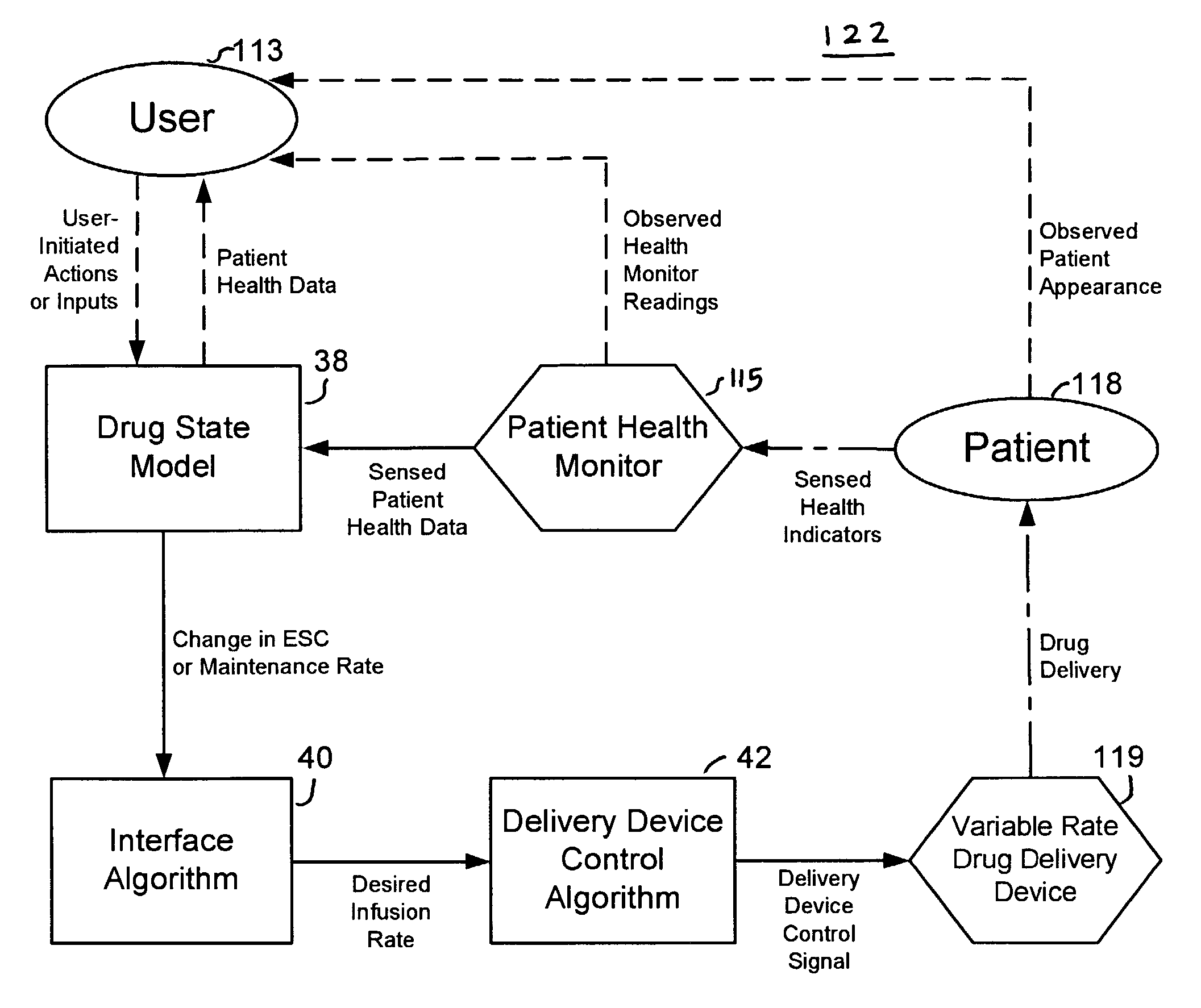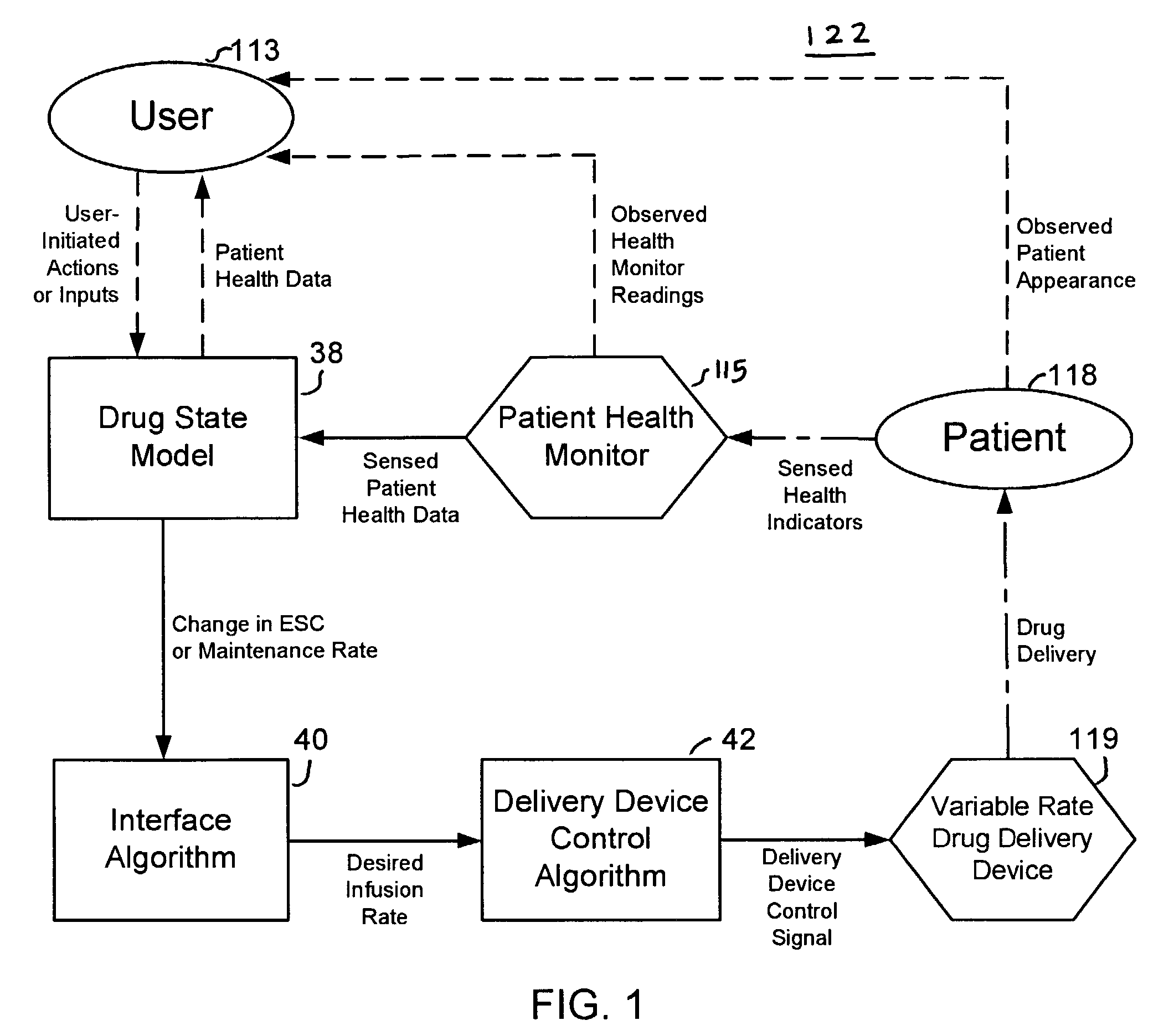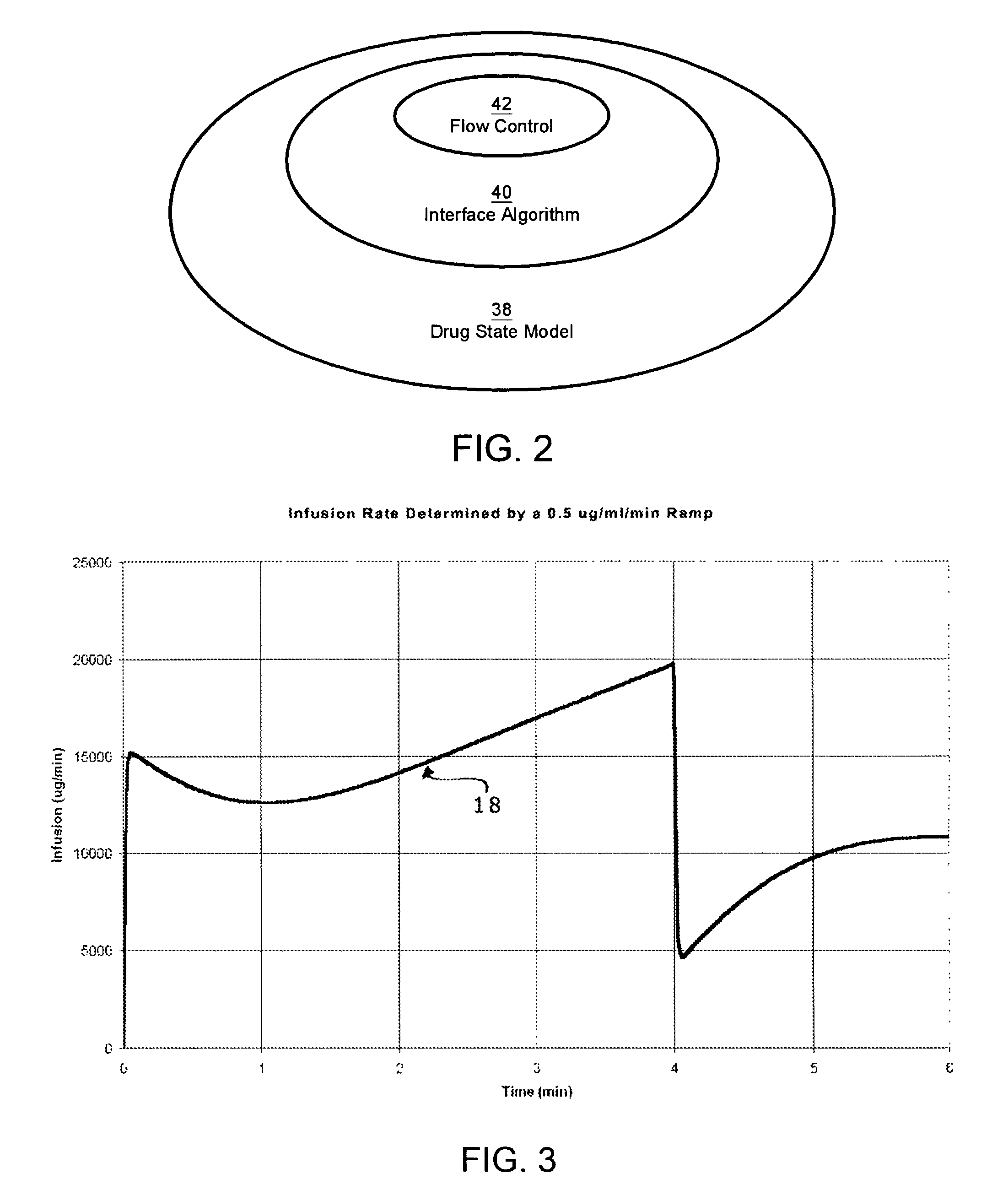Apparatuses and methods for titrating drug delivery
a technology of titration drug and apparatus, applied in the field of apparatus and methods for titration drug delivery, can solve the problems of time-consuming and laborious traditional titration process, patient response, and human error, and achieve the effect of reducing clinical workload, enhancing the effectiveness of relieving fear and pain for patients, and increasing the safety of titration drug administration
- Summary
- Abstract
- Description
- Claims
- Application Information
AI Technical Summary
Benefits of technology
Problems solved by technology
Method used
Image
Examples
Embodiment Construction
[0029]To accomplish a “clinician knows best” paradigm and thus allow clinician users to always remain in charge while computers perform repetitive and labor-intensive tasks, the present invention utilizes computer-assisted drug delivery as opposed to computer-controlled drug delivery. The systems and methods for computer-assisted drug delivery according to the present invention can initiate well-defined, pre-programmed actions, based on clinical heuristics, without clinician input, if the automated action (e.g., drug level reduction) will, in general, produce a safe effect. The pre-programmed actions, based on clinical heuristics, can be implemented as a transparent, finite-state algorithm wherein well-defined events (such as certain caution or warning alarms (based on the patient's physiological reaction or on the state of the drug delivery apparatus), user input, or impending loss of responsiveness to stimulation) trigger the system to transition from one drug delivery state (or “...
PUM
 Login to View More
Login to View More Abstract
Description
Claims
Application Information
 Login to View More
Login to View More - R&D
- Intellectual Property
- Life Sciences
- Materials
- Tech Scout
- Unparalleled Data Quality
- Higher Quality Content
- 60% Fewer Hallucinations
Browse by: Latest US Patents, China's latest patents, Technical Efficacy Thesaurus, Application Domain, Technology Topic, Popular Technical Reports.
© 2025 PatSnap. All rights reserved.Legal|Privacy policy|Modern Slavery Act Transparency Statement|Sitemap|About US| Contact US: help@patsnap.com



